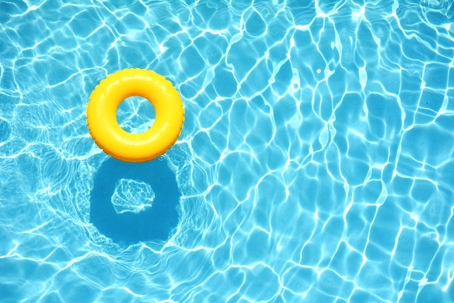Premises Liability & Swimming Pool Injuries
Swimming is undoubtedly a go-to summer activity for kids and families alike. A little fun in the sun never hurts — or does it? Unfortunately, swimming pools can pose a serious safety threat, no matter how experienced a swimmer may be. This particularly holds true for children, which you can see from the data below.
Believe it or not, homeowners who invite guests onto their property could be held legally responsible for any injuries or fatalities that occur in their swimming pools or spas. As property owners, homeowners owe a duty of care to those who they invite onto their property. They are expected to keep their property safe and free of hazards, so when homeowners fail to do so, any injured guests could sue for their injuries. As such, the injured party would be the plaintiff and the accused would be the defendant.
To have a chance of obtaining compensation for their injuries, a plaintiff must prove for elements in a premises liability claim. These elements are:
- The plaintiff had injuries/damages/losses
- The defendant actually knew about a danger on the property (or, as a person using reasonable care, should have known about it)
- The defendant failed to use reasonable care to protect against the danger on the property
- The defendant’s failure was a cause of the plaintiff’s injuries/damages/losses
A key factor we want to point out is the defendant’s knowledge of the danger. As said above, the defendant must have known or reasonably should have known that a danger existed on their property. Without this knowledge, a plaintiff may be unsuccessful in their claim.
For instance, let’s say your neighbor throws a housewarming party to celebrate their brand-new “home sweet home.” You and your friends decide to play pool games that involve getting in and out of the pool. After getting out of the pool, you slip and fall and suffer a serious concussion. Can you sue? It depends. If your neighbor had a “No running by the pool” sign, then your chances of having a claim are lower but still viable. If your neighbor did not have a sign, then you may have a claim.
Swimming Pool Safety Guidelines
According to the CDC, drowning is the leading cause of injury-related deaths besides birth defects in children ages 1 to 4 years old. The CDC also estimates that about 3,960 fatal unintentional drownings in the US occur each year, which equals an average of 11 drowning deaths each day. Not to mention, it also estimates that about 8,080 nonfatal drownings occur in the US each year. Kids and teens account for about one-third of the 4,500 pool chemical injury victims that end up in the ER each year.
As you can see, swimming pools can be dangerous and deadly, but not because they’re inherently built as such. The CDC explains certain factors that increase the likelihood of drowning and pool-related injuries, which include:
- Inability to swim
- Missing or ineffective fences around water
- Lack of supervision (i.e., lifeguards, parents, etc.)
- Location (i.e., swimming pools, rivers, lakes, or oceans)
- Lack of life jackets
- Alcohol consumption
- Drug and prescription medication use
With these aspects in mind, you can see that swimming pool-related injuries and deaths are preventable. Rarely are these incidents caused by pool defects themselves but rather by the negligence of others. That’s why parents, caregivers, and supervisors need to keep the following pool safety tips in mind, as provided by PoolSafely.gov:
Stay Close, Be Alert, and Watch
- Always watch children and never leave them unattended
- Keep children away from pool drains, pipes, and other openings
- Have a charged phone close by at all times
- If a child is missing, check the pool first
- Share safety instructions with family, friends, and neighbors
- Even if a lifeguard is present, parents and caregivers should still take the responsibility of being a designated Water Watcher
Learn and Practice Water Safety Skills
- Learn to swim and make sure kids do, too
- Know how to perform CPR on children and adults
- Understand the basics of life-saving so that you can assist in a pool emergency
Have the Appropriate Pool Equipment
- Install a fence of at least four feet in height around the perimeter of the pool or spa
- Use self-closing and self-latching gates
- Ensure all pools and spas have compliant drain covers
- Install an alarm on the door leading from the house to the pool
- Keep pool and spa covers in working order
- Have life-saving equipment such as life rings or reaching poles available for use
Avoid Drain Entrapments
- Hair can get caught in a faulty drain cover
- Arms, legs, and fingers can become lodged in a suction opening
- Any body part that can cover a drain can be held down by suction
- Sitting on a faulty drain can cause injuries or disembowelment
- Jewelry or bathing suits can become entangled in a faulty drain cover
Other Pool Safety Tips
- Make sure children do not play or swim near drains or suction outlets, especially in spas and shallow pools
- Ensure children never enter a pool or spa that has a loose, broken, or missing drain cover
- If you see a broken or loose drain cover, immediately notify a lifeguard and the pool/spa manager
Injured in a Pool? Start Your Claim Today.
If you or a loved one was injured in a swimming pool and believe it was caused by another’s negligence, you may have a claim. Our attorney can review your situation and determine if you have a claim, and if you do, we can fight for maximum compensation to help you get back on your feet and move forward. Get started on your path to recovery today!
Contact us at (803) 938-4952 to schedule your consultation.

